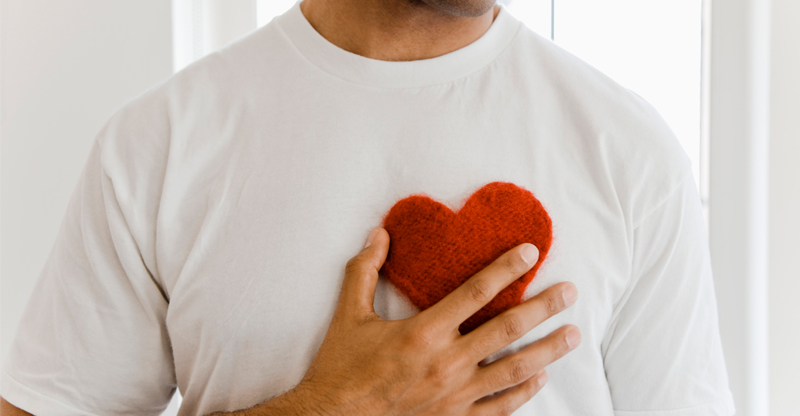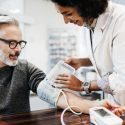Different types of heart disease

Heart disease is the leading cause of death in the U.S., killing more than 370,000 people here each year.1
So let’s get to know this enemy. Heart disease refers to any condition or disease relating to the heart.2 And when it comes to the heart, many problems can occur. These include:
- Coronary artery disease
- Arrhythmias
- Heart failure
- Congenital heart defects
- Cardiomyopathy
- Heart valve problems
For many people, the first signs of heart disease are chest discomfort and/or a heart attack. But signs and symptoms can vary depending on the type of heart disease. Below we will learn more about each type.
Coronary artery disease
The most common type of heart disease in the United States is coronary artery disease, affecting more than 16 million Americans3 and killing more than 370,000 people each year.4 Coronary artery disease is caused by a buildup of cholesterol and fatty deposits called plaque in the arteries. This plaque makes the arteries more rigid and narrow, restricting blood flow and oxygen to the heart.3 Since plaque accumulates over time, many do not experience symptoms until a significant event such as chest pain or a heart attack.
The following symptoms can be a sign of those conditions:
- Angina – chest discomfort, pressure, tightness, or pain
- Shortness of breath
- Palpitations
- Faster heartbeat
- Irregular heartbeat
- Nausea/vomiting
- Sweating
- Dizziness
- Weakness/fatigue
If you do experience the following symptoms, seek medical attention right away! Without treatment, coronary artery disease can weaken the heart and contribute to additional heart problems over time.
Arrhythmias
Heart arrhythmias are an abnormal rhythm or rate of the heartbeat.2 This condition can cause extra or skipped heartbeats that interrupt the normal heart rhythm.
Symptoms of arrhythmias include:
- Fluttering or pounding in the chest
- Racing heartbeat
- Slow heartbeat
- Chest pain
- Shortness of breath
- Dizziness
- Feeling faint or light-headed
Some can pass quickly and be harmless, but others can cause significant damage. Talk to your doctor if you experience any of these symptoms.
Atrial fibrillation
This type of arrhythmia causes poor blood flow in the body, which could increase the risk of blood clots, stroke, heart failure, and additional complications.1 Symptoms may vary between individuals — some people may experience no symptoms, while others feel them immediately.6 These symptoms include:
- Difficulty breathing
- Feeling dizzy, lightheaded, or faint
- Palpitations
- Weakness
- Chest discomfort or pain
- Lack of energy
If you or a loved one has experienced symptoms, talk to your doctor to get the right treatment and lower your risk.
Heart failure
Heart failure occurs when the heart is not able to pump blood around the body efficiently (WebMD). Symptoms may not be related to the severity of the disease.
Symptoms include:
- Shortness of breath during activity or rest
- Cough
- Rapid weight gain
- Swelling in legs, ankles, and abdomen
- Confusion or impaired thinking
- Dizziness
- Fatigue
- Rapid heart rate and/or palpitations
- Chest pain
- Nausea
If you have experienced any of these symptoms, talk to your doctor. He or she can help you find the right treatment, so you can manage this condition and live a healthy life.
Congenital heart defects
Congenital heart defects can be diagnosed before birth, immediately after birth, during childhood, or even in adulthood. It is possible to experience no symptoms at all. If adults do have a heart defect, symptoms may include:
- Shortness of breath
- Limited ability to exercise
- Symptoms similar to heart failure
Talk to your doctor if experience any of these symptoms.
Cardiomyopathy
Cardiomyopathy is a disease of the heart muscle. It becomes enlarged and/or rigid, making it difficult for the heart to pump blood. Many people experience no symptoms, but these can develop and worsen over time and lead to further heart complications.5
Symptoms include:
- Chest pain or pressure, especially after activity
- Heart failure symptoms
- Swelling of lower extremities
- Fatigue
- Fainting
- Palpitations
Some patients may have no signs and symptoms with no need for treatment, but others can develop quickly with severe symptoms. Talk to your doctor if you do experience these symptoms to help you control symptoms and reduce the risk of complications.
Heart valve problems
There are four valves in the heart that ensure blood does not flow backward. When a valve is damaged, it may not open or close fully, letting blood flow backward. The heart then has to work harder to pump blood out. Symptoms include:
- Shortness of breath
- Difficulty breathing
- Swelling
- Chest pain
- Low or high blood pressure
- Abdominal pain
- Weakness
- Dizziness
- Palpitations, including rapid heartbeat, irregular heartbeat, skipped beats, or fluttering
People with severe symptoms may only have a minor case. Talk to your doctor if you are experiencing any of these symptoms.5
There are many different forms of heart disease, each with its own set of symptoms and treatment. By recognizing these symptoms and talking with your doctor, you can receive the correct diagnosis and proper treatment to live a long and healthy life.
Resources:
- https://www.heart.org/idc/groups/ahamah-public/@wcm/@sop/@smd/documents/downloadable/ucm_480086.pdf
- http://www.mayoclinic.org/diseases-conditions/heart-disease/basics/definition/con-20034056
- http://my.clevelandclinic.org/health/articles/coronary-artery-disease
- https://www.cdc.gov/heartdisease/facts.htm
- http://www.webmd.com/heart-disease/guide/heart-disease-symptoms#1
- http://www.heartfoundation.org.nz/your-heart/heart-conditions/



